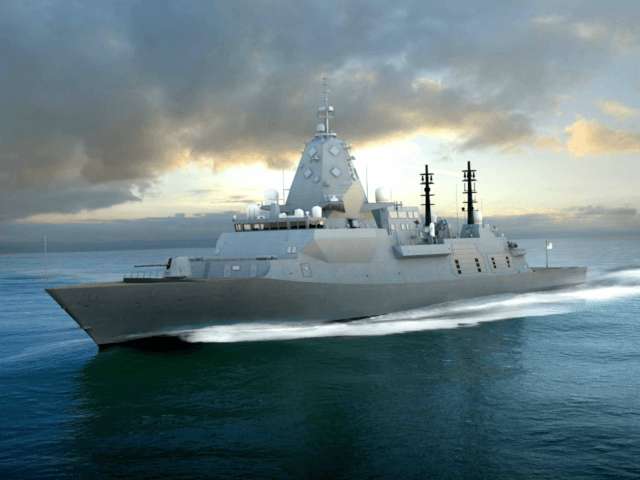British defence giant BAE Systems has beaten Italian and Spanish rivals to win a £20 billion contract to design and build frigates for the Australian navy, in one of the biggest post-Brexit boosts yet.
Australian Prime Minister Malcolm Turnbull will confirm the massive deal tomorrow, the Sydney Morning Herald reports, after the publication predicted the result of the bidding process last week.
The UK firm will design and manage the construction of nine anti-submarine warships, which will be constructed in Adelaide and come into service from the late 2020s.
The new, cutting-edge Type-26 Frigates will replace the current Anzac Class frigates used by Australian forces. It is hoped the massive deal will help refine British technology and lower the operating costs for the Royal Navy, who have already ordered eight of the class.
In a statement shared with the Herald, Mr Turnbull said: “ASC Shipbuilding will be a strategic national asset capable of independently designing, developing and leading the construction of complex, large naval warships.”
The Australian premiere will officially announce the deal on Friday alongside Australia’s defence minister Marise Payne and Christopher Pyne, the defence industry minister.
“The Hunter class will provide the Australian Defence Force with the highest levels of lethality and deterrence our major surface combatants need in periods of global uncertainty,” he added.
Stephen Phipson, chief executive of EEF, the manufacturers’ organisation, hailed the news as a big win for British industry.
“This win for the UK defence industry is the result of years of hard work with government and industry working in close partnership.
“The decision by the Australian Government confirms the UK leadership in advanced Frigate design and the strengthening of ties at both the industrial and defence level between the UK and Australia.”
Michael Shoebridge, an analyst with the Australian Strategic Policy Institute, told the Financial Times the choice of a UK firm is likely to involve emotional, cultural, and strategic factors, as well as the technical criteria required for the project.
“The UK and Australian defence partnership is long and deep. There is also a lot of emotion around Brexit, which may have played a role given the potential for a deeper partnership with the UK into the future,” he said.

COMMENTS
Please let us know if you're having issues with commenting.